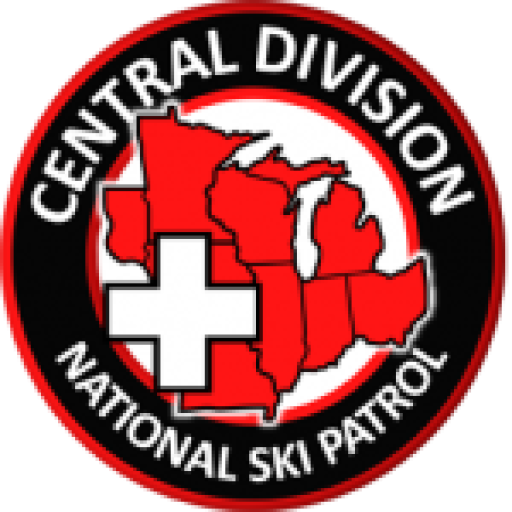Mountain Travel and Rescue

The mission of the Mountain Travel and Rescue (MTR) program is to provide ski patrollers and interested members of the public with knowledge and skills that
- enhance their effectiveness at ski patrolling
- build their outdoor leadership capacities
- enable them to serve as assets and leaders in search-and-rescue operations, especially in winter settings and mountain environments.
The sequence of five courses covers basic survival skills, mountain travel techniques, wilderness navigation, hazard management, mountain weather, group dynamics, environmental considerations, medical problems specific to mountain environments, search-and-rescue principles, and emergency rescue techniques, including rope work.
To see if there are MTR courses available in your area, view the course schedule on NSP’s member site; enter “Mountain Travel Rescue” in the Course Title Contains field.
NSP’s textbook, Mountain Travel and Rescue, 2nd edition, is available through The Mountaineers Books.
Training Opportunities
This course provides students with basic knowledge and skills to travel and work in reasonable comfort and safety in an outdoor environment. Field practice includes basic navigation, travel, and survival, and an introduction to search and rescue. This course does not include an overnight campout.
| Completion of the following free online courses in the incident Command System ICS 100 and ICS 700. | |
| Time Commitment: | Adequate classroom instruction to prepare students for a field session. There is no overnight campout included in this course curriculum. |
| Fees: | National – none; Division – varies; Local – varies |
| Credential: | NSP Certificate of Achievement |
| Continuing education/refresher requirement: | Attend local on-the-hill/trail refresher, audit/retake course, or attend continuing education seminars offered by MTR instructors. |
| Instuctor of Record: | NSP Mountain Travel and Rescue instructor |
| Required Text: |
|
This course provides students with the knowledge and skills to travel and work in reasonable safety and comfort in the outdoor environment and to assist a search and/or rescue team, including possible overnight operations. Field practice includes practice in navigation, travel, survival skills, basic search and rescue exercises, and an overnight campout.
| Prerequisite: | Completion of the following free online courses in the incident Command System ICS 100 and ICS 700. |
| Time commitment: | Adequate classroom instruction to prepare students for a field exercise that lasts through one night. |
| Fees: | National – none; Division – varies; Local – varies |
| Credentials: | NSP Certificate of Achievement |
| Continuing education/refresher requirement: | Attend local on-the-hill/trail refresher, audit/retake course, or attend continuing education seminars offered by MTR instructors. |
| Instructor of record: | NSP Mountain Travel and Rescue instructor |
| Required texts: |
Note: Mountain Travel and Rescue Fundamentals and Mountain Travel and Rescue 1 are parallel rather than sequential courses. Students may select one or the other course, depending on area needs and requirements. |
Mountain Travel and Rescue Level 2 is designed as a follow-up course to MTR F and/or MTR 1. This course provides more in-depth training and field work in land navigation, search and rescue, rope rescue, improvised toboggan construction, survival skills, and emergency shelter construction that students can utilize during the length of the course.
| Prerequisites: |
|
| Time commitment: |
|
| Fees: | National – none; Division – varies; Local – varies; Permit fees – if applicable |
| Credentials: | NSP Certificate of Achievement |
| Continuing education/refresher requirement: | Attend local on-the-hill/trail refresher, audit/retake course, or attend continuing education seminars offered by MTR instructors. |
| Instructor of record: | NSP Mountain Travel and Rescue instructor |
| Required texts: |
Note: Mountain Travel and Rescue Fundamentals and Mountain Travel and Rescue 1 are parallel rather than sequential courses. Students may select one or the other course, depending on area needs and requirements. |
The MTR Enhancement Seminar is designed to provide patrollers with the ability to acquire additional and more in-depth training in specific topics within the MTR program. The extended training of specific skills taught in Mountain Travel & Rescue courses allows the patrollers and instructors to focus on one to two topics based on their area needs.
This course provides patrollers and their areas of operation a source to customize their training based on their needs. If an area of operation is prone to having more guests lost on trails, such as backcountry skiers or snowshoers, the patrollers may require additional training in Search & Rescue techniques or the area may have more ravines or gullies and require patrollers to be more skilled at rope rescue and need deeper training in Low Angle Rescue.
The premise of the course is to allow one to two topics to be taught. If only a single topic is needed, then the course will last eight hours covering field and/possibly class work. If two topics are desired then the course will be divided over the two topics covering field and/possible class work. The extended training will allow a more in-depth study of the topic(s), allow more hands on practice, additional practice scenarios, and more real-life experiential knowledge transfer and discussion from instructor to student.
| Potential Course Topics |
| ||
| Prerequisite: | None | ||
| Time Commitment: | Eight hours of class and field exercises | ||
| Fees: | National – none; Division – varies; Local – varies | ||
| Credential: | NSP Certificate of Achievement | ||
| Instuctor of Record: | NSP Mountain Travel and Rescue instructor | ||
| Required Text: | Mountain Travel & Rescue Manual |
